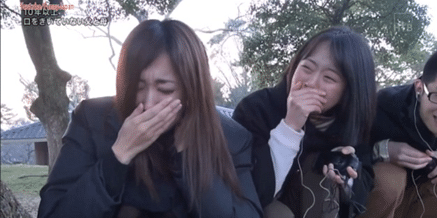A married couple from southern Japan, Otou and Katayama Yumi, saw two decades pass without having a single conversation. Though the pair lived together and co-parented three children during this time, Otou, the husband, refused to engage with wife Katayama.
Katayama persisted, regularly trying to draw a response from Otou during his silent period, but to no avail. Her efforts were consistently met with nonverbal responses, such as nodding, grunting, and shaking his head. Despite this, Otou remained vocal with his children.
Otou later revealed the source of his bad attitude on a television show. Citing jealousy, the husband explained that he felt ignored by his wife as she gave too much attention to their three children and not enough to him. As a result, he sat in silence for 20 years.
The TV show that broke the silence
The couple’s 18-year-old son, Yoshiki, contacted a TV show for help fixing his parents’ strained relationship. He revealed that he had never heard his parents talk with one another.
TV Hokkaido decided to help the family, arranging a meeting between the couple in the park where they had their first date. Unknown to the pair, their children watched on, emotional at their breakthrough.

As the couple met, Otou looked tentative. After a few seconds, he mustered up the courage to address his wife, beginning with, “Somehow… It’s been quite a while since the two of us have talked…”
He revealed his motivations for ignoring his wife, saying, “You were so concerned about the kids…”
“Up until now… you have endured a lot of hardship,” he admitted, “I want you to know… I’m grateful for everything.”
Katayama responded by saying that she was also very thankful before Otou told her he wanted to talk more after this interaction. “I hope we can work together from here,” he said.
Responses to the reunion
Though many have hailed this moment as heartwarming, the Guardian journalist Lola Okolosie highlights the unsettling side of this story. She sees it as an example of coercive control, defined by Women’s Aid as ‘controlling behavior’ that ‘is designed to make a person dependent by isolating them from support, exploiting them, depriving them of independence and regulating their everyday behavior.’
Okolosie shines a light on ‘the grim reality’ of Katayama’s experience. She suggests that ‘this might be less a comedy and more a peep into how coercive control operates,’ sympathizing with the wife’s ’emotional resilience’ and ‘humiliation.’
This resonates particularly well with the footage in the video above, which does not show the husband apologizing but instead shows him blaming his wife for being so preoccupied with their children. Rather than apologizing, he thanked her for putting up with his two-decade-long sulk.
What do you think? A light-hearted story about a surprisingly long-standing argument between a couple or a glossed-over account of emotional manipulation? We would love to hear your thoughts in the comments below.













